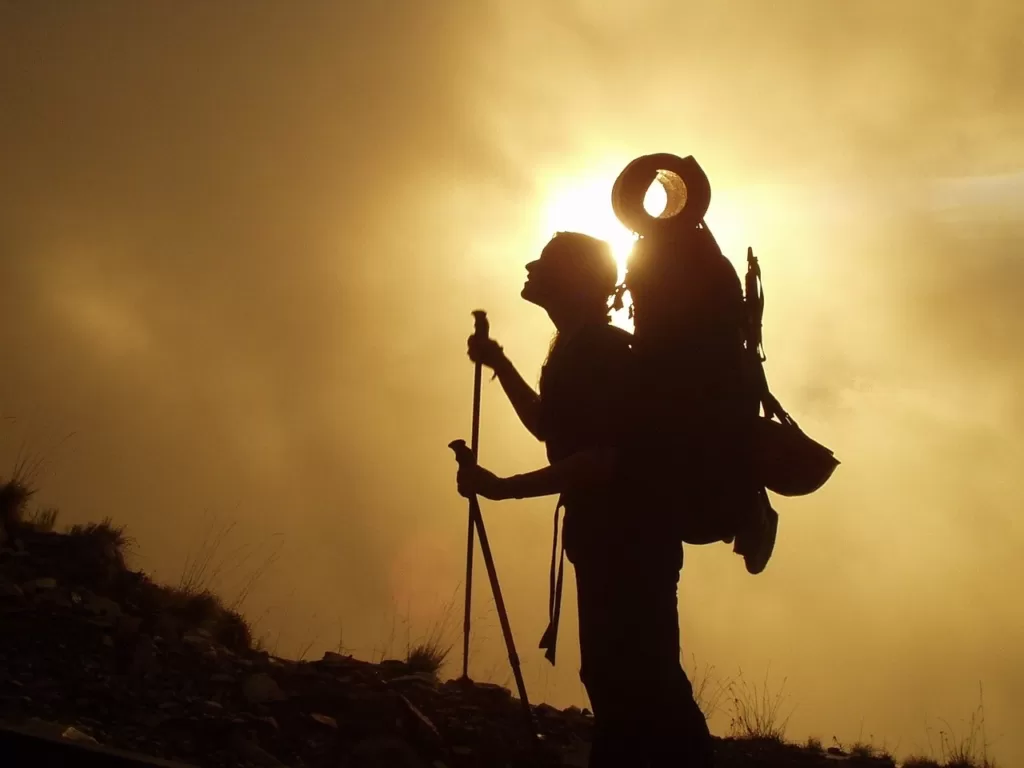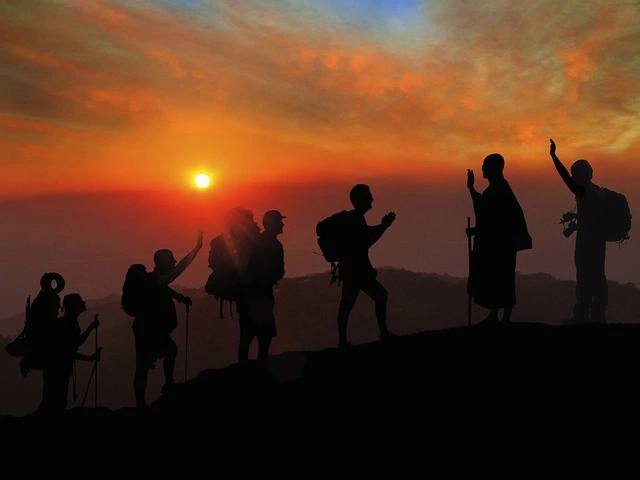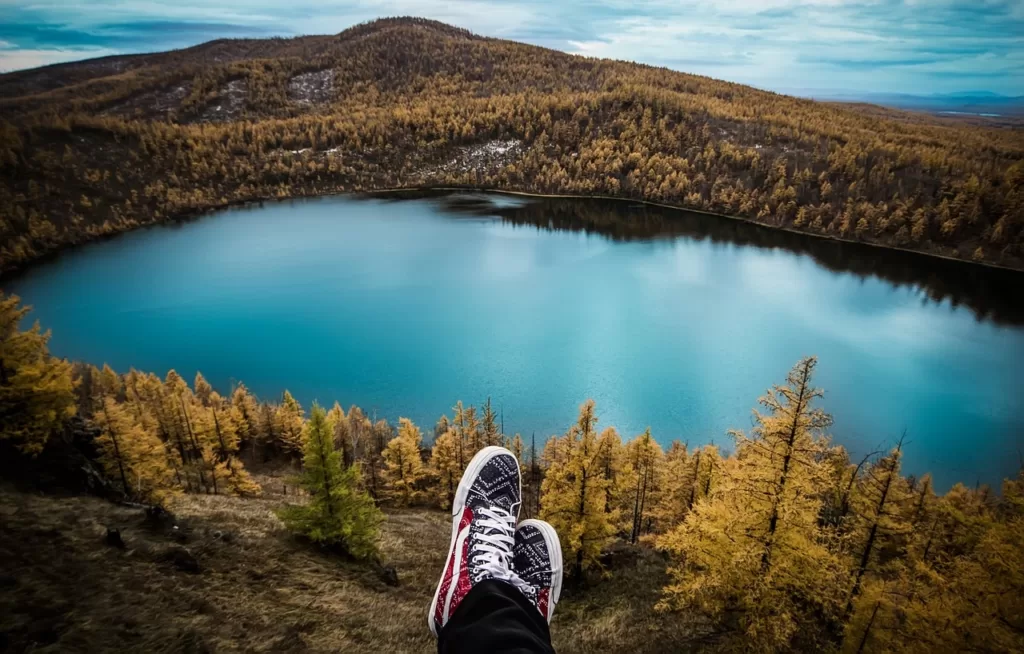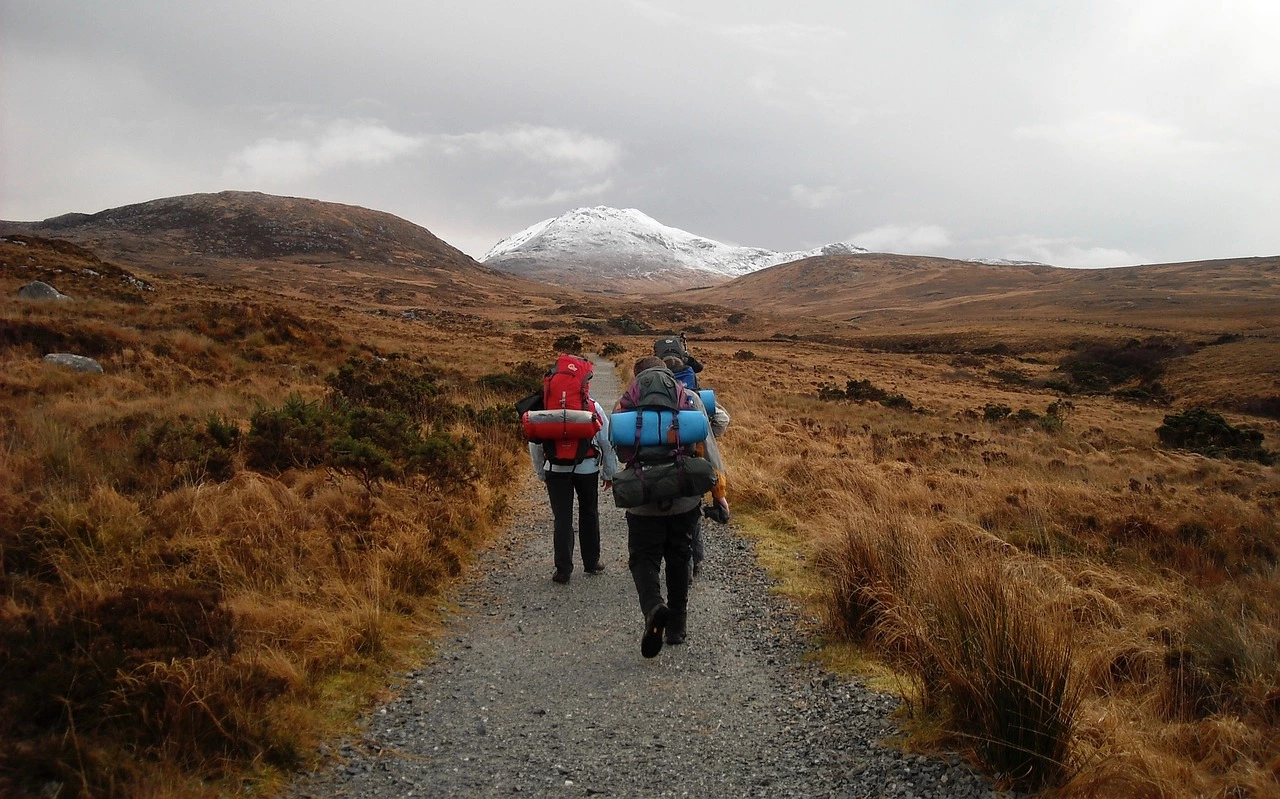Introduction
Hiking is a wonderful outdoor activity that allows you to connect with nature, get some exercise, and discover breathtaking landscapes. If you’re new to hiking, it might seem a bit overwhelming at first, but fear not! In this beginner’s guide, we’ll cover everything you need to know to get started on your hiking journey.
Table of Contents

What is Hiking?
Hiking is the activity of walking in natural environments, often on designated trails or paths. It is a popular recreational pursuit that offers both physical and mental benefits. Hiking can range from easy, leisurely walks on flat terrains to more challenging treks up mountains and through rugged landscapes.
Choosing the Right Trail
When starting with hiking, it’s crucial to choose a trail that matches your fitness level and experience. Look for beginner-friendly trails with well-marked paths and manageable distances. Research the trail difficulty, terrain, and elevation gain before embarking on your adventure.
Essential Hiking Gear
Before hitting the trail, make sure you have the right gear to ensure a safe and enjoyable hike. Some essential items include:
3.1 Hiking Footwear
Invest in a sturdy pair of hiking boots or shoes that provide good ankle support and traction on various terrains.
3.2 Backpack
Carry a comfortable backpack to store your essentials like water, snacks, a map, a first aid kit, and extra clothing.
3.3 Clothing and Layering
Dress in moisture-wicking and breathable clothing suitable for the weather. Layering allows you to adjust your outfit as needed.
3.4 Navigation Tools
Bring a map, compass, or GPS device to help you navigate the trail and avoid getting lost.
3.5 First Aid Kit
Always carry a basic first aid kit with bandages, antiseptic wipes, pain relievers, and any personal medications.
Safety Precautions
Safety should be your top priority while hiking. Consider these precautions:
4.1 Know Your Limits
Start with shorter and easier hikes, gradually increasing the difficulty as you gain experience and confidence.
4.2 Check the Weather
Be aware of the weather forecast for the day of your hike. Avoid hiking in severe weather conditions.
4.3 Tell Someone Your Plans
Inform a friend or family member about your hiking plans, including your intended route and estimated return time.
4.4 Stay on Marked Trails
Stick to marked paths to avoid getting lost and minimize environmental impact.
4.5 Leave No Trace
Respect nature by packing out all trash and avoiding damage to plants and wildlife.

Preparing for Your Hike
Proper preparation ensures a more enjoyable hiking experience:
5.1 Physical Preparation
Start a fitness routine to build stamina and strength, focusing on leg muscles and cardiovascular endurance.
5.2 Mental Preparation
Develop a positive mindset and be prepared for challenges. Mental strength is essential during tough hikes.
5.3 Packing Smart
Pack only what you need to avoid carrying unnecessary weight and strain.
On the Trail
When you’re on the trail, keep these tips in mind:
6.1 Start Slowly
Warm up and pace yourself to avoid fatigue early in the hike.
6.2 Follow Trail Markers
Pay attention to trail markers to stay on the right path.
6.3 Stay Hydrated and Snack Wisely
Drink water regularly and fuel your body with nutritious snacks.
6.4 Enjoy the Scenery
Take breaks to enjoy the beautiful surroundings and wildlife.
6.5 Hiking Etiquette
Respect other hikers and maintain proper trail etiquette.
Dealing with Challenges
Overcome common challenges during hikes:
7.1 Handling Fatigue
Rest when needed and listen to your body’s signals.
7.2 Crossing Water Obstacles
Carefully navigate streams or rivers, using rocks or logs as stepping stones.
7.3 Dealing with Insects and Wildlife
Protect yourself from insects and know how to behave around wildlife.
7.4 Coping with Weather Changes
Be prepared for sudden weather changes by dressing in layers.
7.5 Finding Help in Emergencies
Know how to call for help and your location in case of emergencies.

Hiking with a Group
Hiking with others can be rewarding:
8.1 Advantages of Group Hiking
Enjoy camaraderie, safety, and shared experiences with a group.
8.2 Finding Hiking Partners
Join hiking clubs or use social media platforms to find like-minded hikers.
8.3 Group Dynamics and Communication
Learn effective communication within a group to ensure everyone’s enjoyment.

After Your Hike
Don’t neglect post-hike care:
9.1 Stretching and Resting
Stretch to relieve muscle tension and get enough rest after the hike.
9.2 Post-Hike Nutrition
Replenish your body with healthy post-hike meals.
9.3 Reflecting on Your Experience
Take time to appreciate and learn from your hiking journey.
Benefits of Hiking
Apart from physical health, hiking offers numerous benefits:
Hiking reduces stress, boosts mood, and enhances mental well-being.
Conclusion
Hiking is an incredible way to immerse yourself in nature and experience its wonders firsthand. By following this beginner’s guide, you’ll be well-prepared for your hiking adventures. Remember always to prioritize safety, respect the environment, and embrace the joy of exploration.
FAQs
1. Is hiking suitable for beginners? Absolutely! There are plenty of beginner-friendly trails that cater to all fitness levels.
2. What kind of shoes should I wear for hiking? Invest in sturdy hiking boots or shoes with good ankle support and traction.
3. How do I find hiking partners? You can join hiking groups or use social media platforms to connect with fellow hikers.
4. Can I go hiking alone? While it’s possible, it’s generally safer and more enjoyable to hike with others, especially for beginners.
5. What should I do if I get lost during a hike? Stay calm, retrace your steps, and if needed, use your navigation tools to find your way back to the marked trail.

